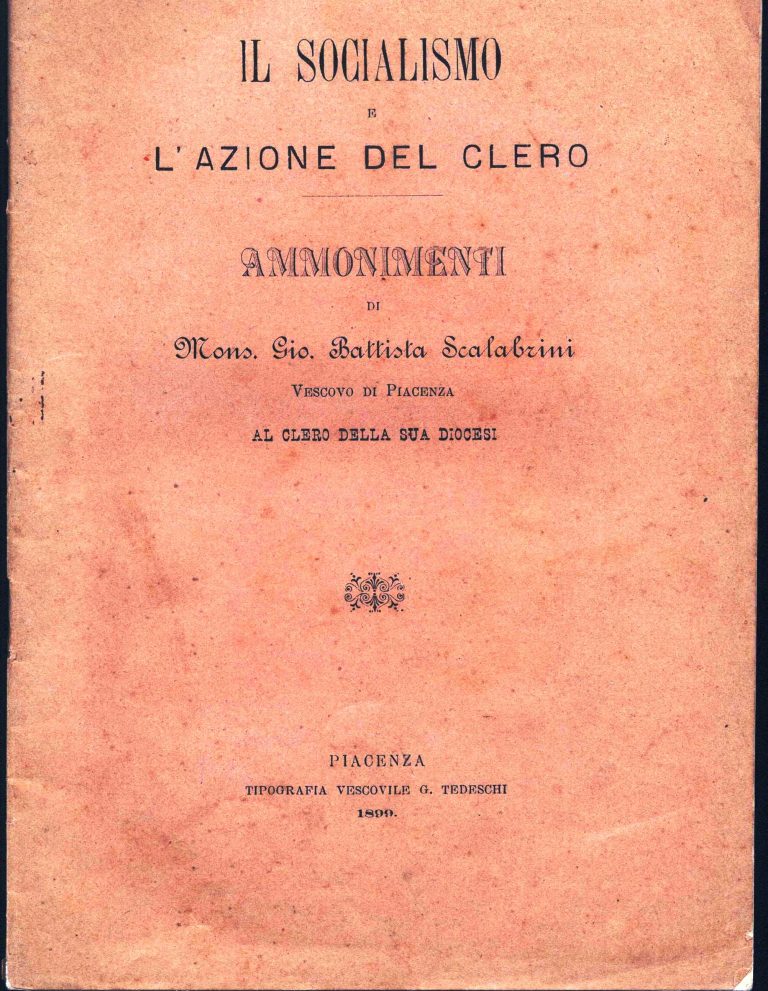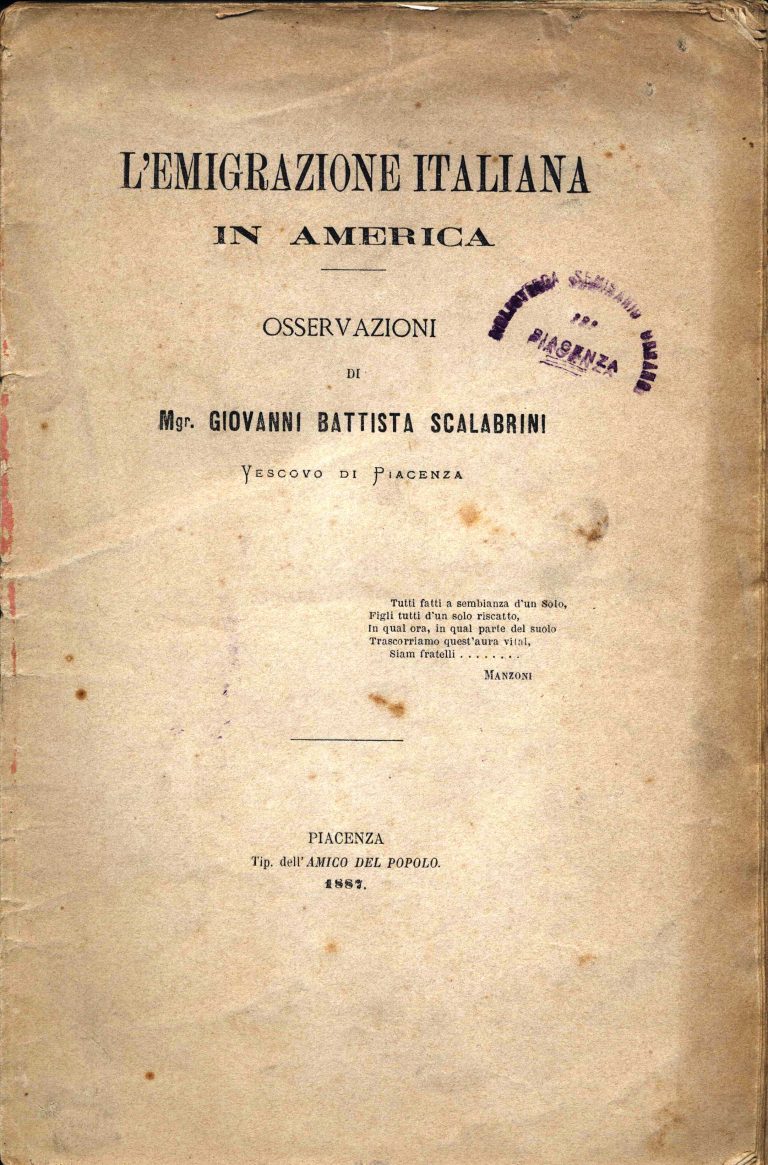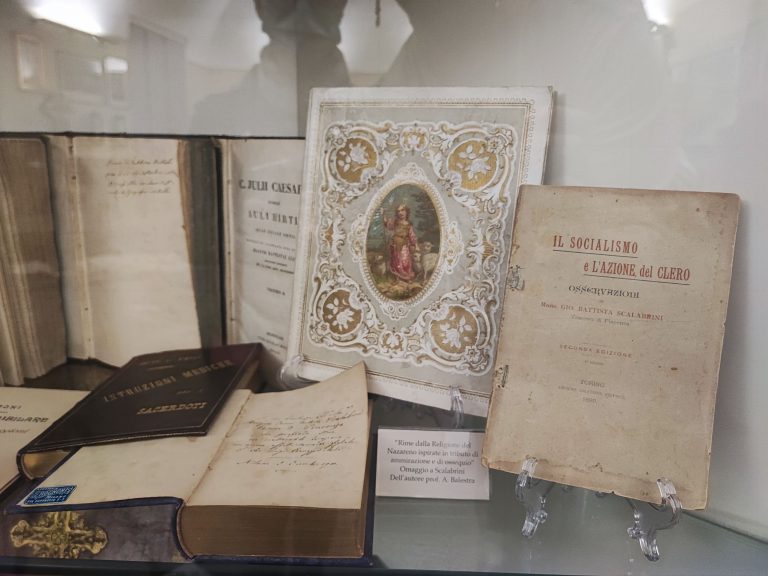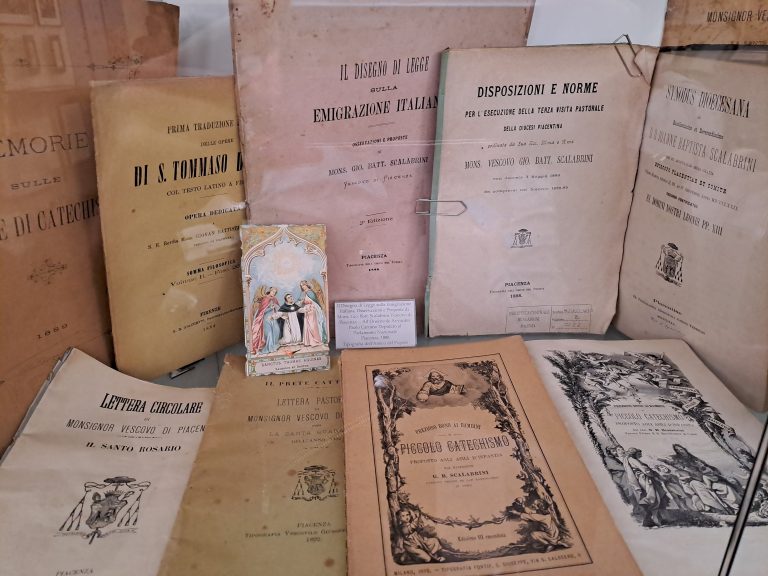Giovanni Battista Scalabrini: a holy bishop, from Piacenza to the world
Social themes
Social themes
MENU
Described by Pius IX as the ‘Apostle of the Catechism’, Scalabrini was the bishop who wrote most about catechesis in the last quarter of the 19th century in Italy. He restored Christian education to its religious primacy, giving the catechism a national and instructive value and a fundamental training role, linking religion and practical life. He reorganised the Catechism School in the diocese of Piacenza, with an action that, inspired above all by St. Charles Borromeo, revitalized every parish with an organic and capillary structure ‘animated and enlivened by the zeal and charity of people… from whom the breath of life unceasingly flows’.
As society changed, the Christian education previously imparted by the family and the school had to be imparted by the Church, and the contents of the catechism had to change, aiming at the defence against heresy and the justification of the faith in the face of secular reason. A catechism therefore in which “faith seeks intellect’. The teachers came to form a kind of lay congregation, which had teachers of theology and pedagogical methods, headmasters and monthly spiritual retreats.
“The Catechism school does not merely teach children the truths of the faith, but educates them in the faith…. It is not only to instruct, but to educate; not only to cultivate and develop the mind, but the heart’ (from Catholic Catechism – 1877 p. 71)
Scalabrini promoted charity initiatives in favour of the poor, prisoners, the sick and orphans. Charity that increased during public calamities, such as the famine of 1879-1880, in which he received public praise in the Chamber. Having exhausted his funds, he pawned his valuables and sold the horses that had been donated to him for pastoral visits. Among the minor social works, we only mention the Istituto Sordomute and the Opera pro-mondariso (a typical case at the time, of seasonal immigration and exploitation of female labour). In 1874, the Opera dei Congressi was founded to unify the religious, social and political action of Catholics and, following the Bishop’s appeal, Piacenza was the second largest city in Italy with no less than 227 parish committees.
Following the tragic Labour Day of 1898, which also claimed victims in Piacenza, Scalabrini wrote Il socialismo e l’azione del clero (1899), a synthesis of his social thought. In it he advocated workers’ participation in company profits, the right to work and strike, insurance against accidents, invalidity and old age pensions, the reduction of working hours and age, proposing the use of cooperativism, mutual aid associations, Catholic banks and rural banks.
In the thirty years that Scalabrini was bishop of Piacenza, around 8 million Italians left their homeland. Scalabrini, who had already become acquainted with the phenomenon during his visits to the parishes of his diocese, recounts in his pamphlet L’emigrazione italiana in America: ‘Who knows what a heap of misfortunes and privations makes such a painful step seem sweet to them! … How many, while finding the bread of the body will lack the bread of the soul, no less than the first necessary and will lose, in an entirely material life, the faith of their fathers? Faced with such a sorry state of affairs… I feel humiliated as a priest and as an Italian and I ask myself: How can I help them?
In 1887, he founded the Congregation of the Missionaries of Saint Charles for the assistance of Italian emigrants and the following year he intervened in the national debate on emigration with the text, ‘Draft Law on Italian Emigration’. He held conferences in many Italian cities to mobilise public opinion on emigration issues and in 1895 founded the Congregation of the Missionary Sisters of Saint Charles.
Please , update your browser




